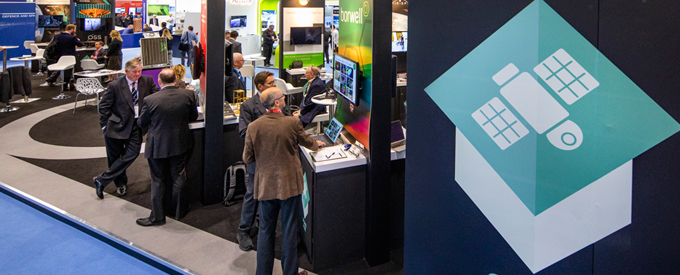2021-08-01
DSEI Panel Discusses Space Travel, Commercialisation
What will the space landscape look like in 2040? How is the importance of space to a country’s prosperity likely to change by 2040 and beyond? What scenarios are most likely and what will influence which scenarios prevail?
These are among several key topics covered in the fourth episode of the DSEI Integrated Space series “Space in 2040,” which looks at the space domain in twenty years’ time through the lens of current trends and the educated predictions of industry, academic and defence subject experts.
DSEI is the world leading event that brings together the global defence and security sector to innovate and share knowledge. DSEI represents the entire supply chain.
Hosted by DSEI Space Adviser Dr Michael Holden, the panel discusses the commercialisation of space, the use of defence capabilities such as surveillance and satellite tracking for civil use and the accessibility to knowledge and technology.
Individual Level
As new actors continue to enter and operate in the space domain, Dr Mathew Broadhead, Space Programme Senior Principal Adviser at the Defence Science and Technology Laboratory (DSTL), expects that in the future access to space technology will be available on an individual level.
“It is a big area. In the last 20 years the commercial arena in space has made money out of parts of what was uniquely a defence enterprise. The interesting future trend is the diversity of access to space. Earlier large space agencies were involved, now we see universities and classrooms within schools getting access to the space capabilities. Over the next 20 years why not smartphone-enabled access of satellites at an individual level?” comments Dr Broadhead.
The DSTL, which celebrated its 20th anniversary on 2 July 2021, is an executive agency of the UK’s Ministry of Defence (MOD) providing expertise and delivering cutting-edge science and technology.
DSTL’s research in space will enable the UK to monitor, direct and protect UK interests through increasing space domain awareness and the establishment of UK-built Intelligence, Surveillance and Reconnaissance satellite constellation and a supporting digital backbone.
On the topic of space travel, SpaceX VP of Commercial Sales, Tom Ochinero, talks about the company’s ambition to enable space travel and ultimately help build a sustainable city on Mars.
“It is tough to predict 20 years. We look forward to sustainable city on Mars, big presence on the Moon and all economies entail to sustain people on both locations. SpaceX focuses on building transportation. Lots of interesting opportunities are awaited,” he says.
SpaceX designs, manufactures and launches the world’s most advanced rockets and spacecraft. The company was founded in 2002 by Elon Musk to revolutionise space transportation, with the ultimate goal of making life multiplanetary.
SpaceX has gained worldwide attention for a series of historic milestones. It is the only private company ever to return a spacecraft from low-Earth orbit, which it first accomplished in December 2010. The company made history again in May 2012 when its Dragon spacecraft attached to the International Space Station, exchanged cargo payloads, and returned safely to Earth — a technically challenging feat previously accomplished only by governments.
Since then Dragon has delivered cargo to and from the space station multiple times, providing regular cargo resupply missions for NASA.
SpaceX completed five test flights of its Starship interplanetary transporter this year and has scheduled to go orbital in the next couple of months.
On the lines of Elon Musk’s vision to make humankind a multi-planetary species, SpaceX aims to operate in a regular flight schedule where passengers can catch a morning or afternoon flight.
Increased Funding
Success in this sector has also inspired venture capitalists who have increased funding in the last 18 months, according to Seraphim Space Camp Accelerator Director Claudia Mendzil, who can see funds in the future being led by breakthroughs in space transportation and investing in space tourism and the lunar economy.
“Seraphim has been investing in space companies for a number of years now. There is great opportunity and we think the trend will continue as space becomes better known and technology improves,” she says.
Seraphim Space Camp is the UK’s first dedicated accelerator programme for start-ups in the SpaceTech industry. Launched by Seraphim Capital, one of the world’s leading venture capital funds specialising exclusively in SpaceTech investment, Space Camp is backed by both the UK and European Space Agencies as well as by corporate partners.
The Space Camp value proposition is designed to attract the ‘best of breed‘ high growth technology companies that are best addressing the biggest challenges facing corporates and the wider SpaceTech industry, and to support them in achieving commercial scale by creating tangible outcomes beyond simply funding.The DSEI panel also explores the potential risks caused by dual use of space technology.
Dr Broadhead highlights the need to understand the role of space operations such as Intelligence, Surveillance and Reconnaissance (ISR) and satellite communications for forces on the ground to fully comprehend the risks. He suggests that “the risk needs to carry over to the users of those services and how they then prosecute their military missions based on them.”
On the subject of regulations and norms in space, experts discuss the likeliness of an event driven future that would affect other domains and generate public interest and political will for change to happen.
Policy is not keeping up with the operating environment, according to Dr Malcolm Macdonald, Director of Applied Space Technology Laboratory at Strathclyde University, who argues that complete agreement on rules is very challenging given current circumstances.
The university’s Strathclyde Space Institute (SSI) is a cross-faculty, multi-disciplinary institute developing frontier research on innovative concepts and solutions for present and future space systems, aerospace transport, satellite applications, the sustainable exploitation and exploration of space and physics in space and from space.
The mandate of the SSI is to foster and coordinate the development of space science and engineering at Strathclyde and support the growth of the space sector in Scotland and the UK.


No Comments